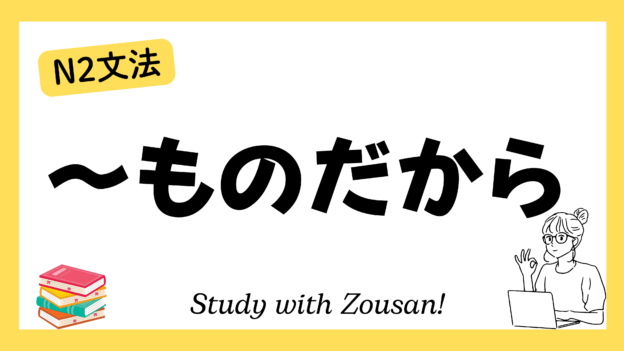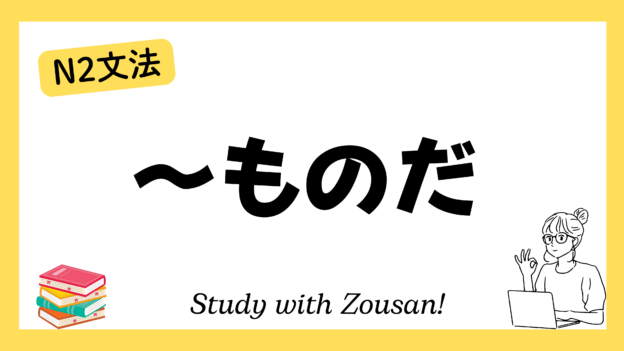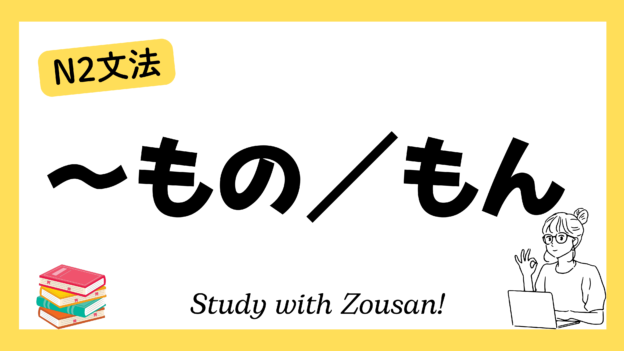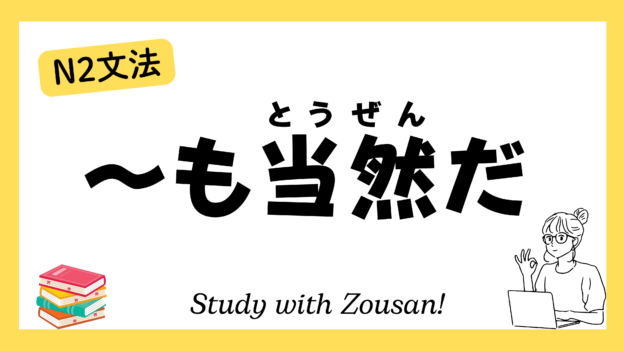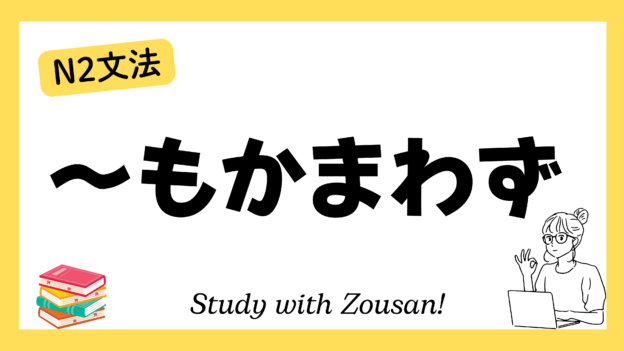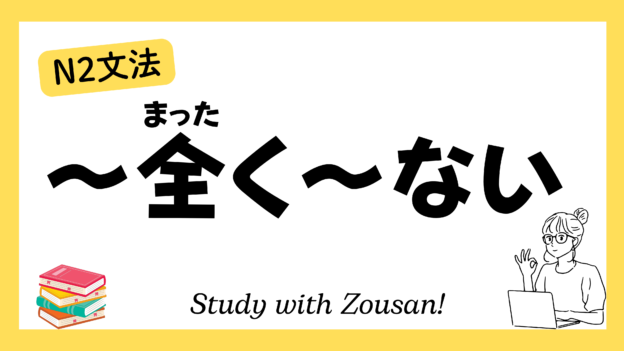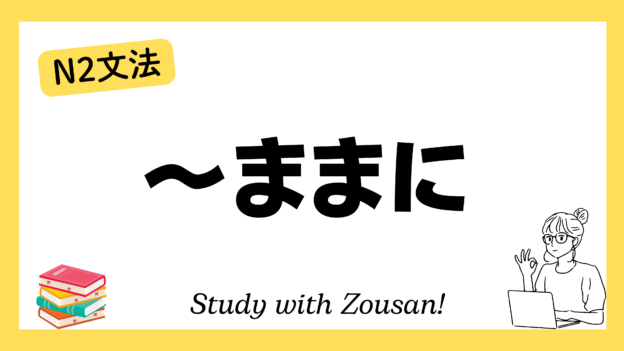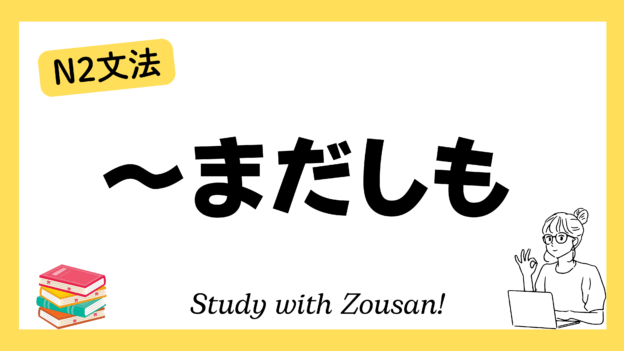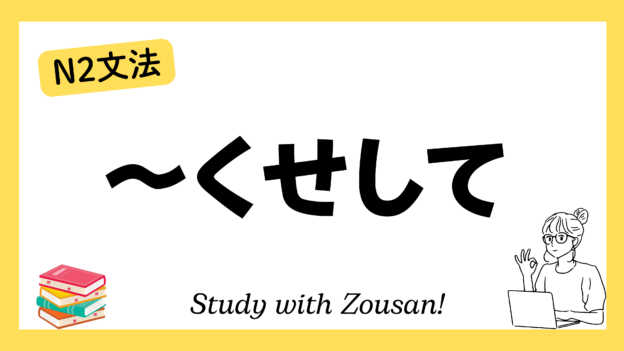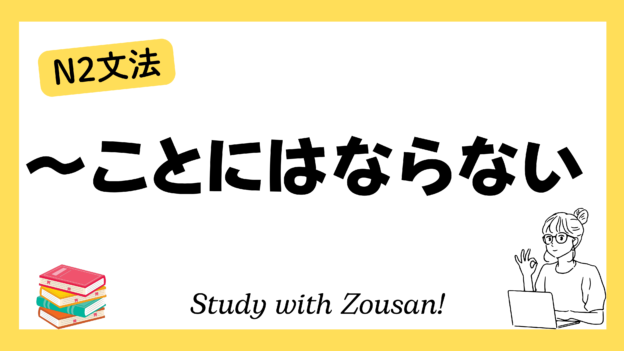Meaning: “Because…” / “Since…” / “As…”
The structure ~ものだから is used to provide a reason or cause in a gentle or explanatory manner, often for personal reasons or to justify an action. It is a relatively formal expression, often used in writing or in polite contexts to explain or excuse an action in a considerate way.
※Note:
・~ものだから is often used in contexts where the speaker wants to give a sincere explanation or justify an action.
・This structure is usually used to explain reasons in situations that require politeness, or when the speaker feels apologetic and wants to clarify the reason for their actions.
Structure:
| Verb (casual) | + ものだから + ものですから + もんだから (spoken) |
| Noun + な | |
| な-Adjective + な | |
| い-Adjective |
Example:
-
-
-
🌟 道が混んでいたものだから、遅れてしまいました。
(みち が こんで いた もの だから、おくれて しまいました)
Because the road was crowded, I was late. -
🌟 お金がなかったものだから、新しいパソコンを買えなかった。
(おかね が なかった もの だから、あたらしい パソコン を かえなかった)
Because I didn’t have money, I couldn’t buy a new computer. -
🌟 頭が痛かったものだから、今日は早く帰りました。
(あたま が いたかった もの だから、きょう は はやく かえりました)
Since I had a headache, I went home early today. -
🌟 風邪を引いていたものだから、仕事に集中できなかった。
(かぜ を ひいて いた もの だから、しごと に しゅうちゅう できなかった)
Because I had a cold, I couldn’t concentrate on my work. -
🌟 雨が降っていたものだから、外に出るのをやめました。
(あめ が ふって いた もの だから、そと に でる の を やめました)
Since it was raining, I decided not to go outside. -
🌟 急いでいたものだから、彼の話を最後まで聞けなかった。
(いそいで いた もの だから、かれ の はなし を さいご まで きけなかった)
Because I was in a hurry, I couldn’t listen to his story until the end. -
🌟 暑かったものだから、エアコンをつけました。
(あつかった もの だから、エアコン を つけました)
Since it was hot, I turned on the air conditioner. -
🌟 昨日は体調が悪かったものだから、休ませてもらいました。
(きのう は たいちょう が わるかった もの だから、やすませて もらいました)
Because I felt unwell yesterday, I took the day off. -
🌟 道に迷っていたものだから、遅刻してしまいました。
(みち に まよって いた もの だから、ちこく して しまいました)
Because I got lost, I was late. -
🌟 電車が止まっていたものだから、遅くなりました。
(でんしゃ が とまって いた もの だから、おそく なりました)
Since the train stopped, I arrived late.
-
-


